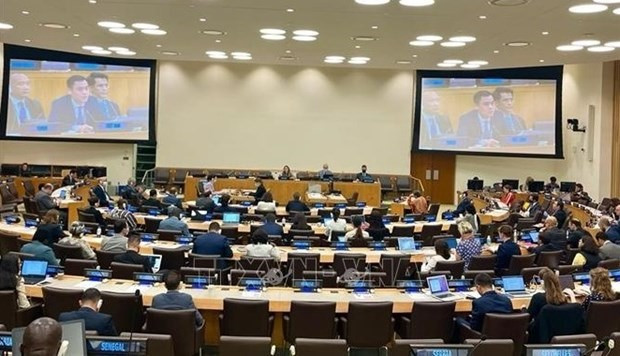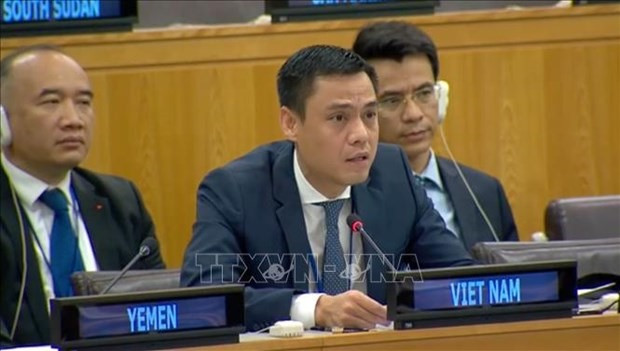Vietnam reaffirms importance of freedom of navigation, overflight in East Sea
New York (VNA) – Vietnam has affirmed the necessity for maintaining peace, security, and freedom of navigation and overflight in the East Sea while attending the 32nd Meeting of States Parties to the 1982 UN Convention on the Law of the Sea (UNCLOS).

The meeting, taking place at the UN headquarters in New York from June 13 to 17, looked into reports by the agencies set up under UNCLOS such as the International Tribunal for the Law of the Sea, the Commission on the Limits of the Continental Shelf (CLCS) and the International Seabed Authority, along with procedural, budgetary, and personnel affairs of these bodies. It also elected CLCS members.
Ambassador Dang Hoang Giang, Permanent Representative of Vietnam to the UN, reaffirmed that UNCLOS, as the “constitution of the oceans”, is the legal framework for all activities in the oceans and seas and also the only legal foundation for comprehensively and fully identifying the scope of countries’ rights to sea areas.
With regard to the East Sea issue, he held that peace and development of the region and international community are connected with the maintenance of peace, security, and freedom of navigation and overflight in the waters.
Stressing the importance of fully and comprehensively implementing the Declaration on the Conduct of Parties in the East Sea (DOC), Giang appealed for all disputes to be resolved by peaceful means, on the basis of international law, including the UN Charter and UNCLOS, with respect for diplomatic and legal processes, and without use of force or threat to use force.

He also informed about the progress of the negotiation on a code of conduct (COC) in the East Sea.
The diplomat shared the view on the sea-related challenges pointed out in the UN Secretary-General’s report, especially the COVID-19 pandemic’s negative impacts on ocean issues, including the worsening of many existing or emerging maritime issues like marine biodiversity, migration, and climate change.
Given this, he emphasised that international cooperation on the basis of UNCLOS holds great importance to coping with these challenges.
In his remarks, Giang also highlighted Vietnam’s viewpoint that when working out solutions to challenges, it is necessary to pay due attention to capacity, technology transfer, and financial assistance for developing countries, and that Vietnam supports the UN’s initiatives on promoting the use of science and techniques to use the oceans sustainably.
At the June 16 discussion on the UN Secretary-General’s report on issues related to the seas and oceans, UN agencies’ activities, and international cooperation last year, participants underlined the request for adhering to UNCLOS, enhancing regional and international cooperation in sea and ocean-related issues, responding to such challenges as marine pollution and climate change, and contributing to the realisation of Sustainable Development Goal 14 on conserving and sustainably using the oceans, seas and marine resources.
Taking effect on November 16, 1994, UNCLOS has been ratified by 168 states and international organisations. Fourteen other states have signed but yet to ratify the convention./.
VNA
